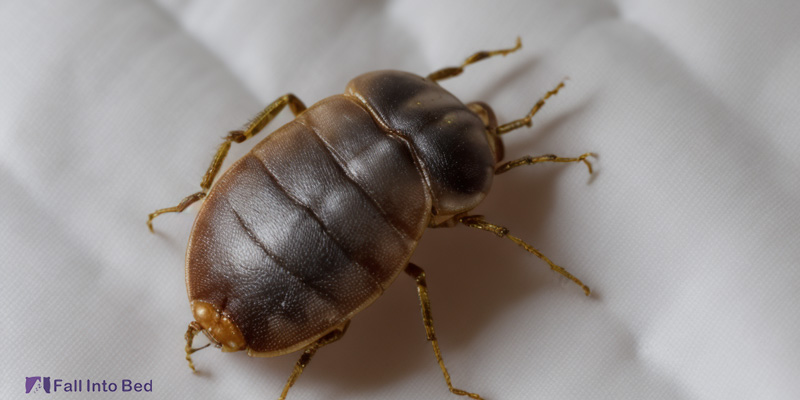Meet the tiny yet persistent bedbug, a nocturnal companion with a knack for stirring up our peaceful sleep. But did you know that these little creatures have some fascinating survival tricks up their sleeves? In this exploration, we’ll dive into the quirky world of bedbugs, investigating just how often they snack on our blood, how long they can live without food, the factors playing puppeteer with their lifespan, and their extraordinary ability to keep the party going even when we’re not around.
Blood consumption: how often do bedbugs throw a blood bash
Bedbugs, scientifically known as Cimex lectularius, are obligate blood-feeding insects that primarily feed on the blood of humans and warm-blooded animals. These unwelcome creatures, have a unique approach to dining that’s both intriguing and a bit unsettling.
Frequency of feeding
Unlike their mosquito friends who may feed multiple times a day, bedbugs are more like laid-back brunch enthusiasts. They typically grab a bite every five to ten days, adapting their feeding habits based on factors like the availability of hosts, ambient temperature, and their own life stage.

Adapting feeding behavior
These pests are savvy opportunists. If there’s a host within arm’s reach, bedbugs might become more frequent diners. But, in times of scarcity, they can switch to conservation mode and survive prolonged periods without a blood meal by entering a state of dormancy.
How long can bedbugs live without food?
The resilience of bedbugs in the absence of a blood meal is a testament to their survival skills. Understanding their capacity to endure without feeding is crucial for effective pest control measures.
Survival period
Bedbugs can survive without a blood meal for remarkably long periods. A well-fed bedbug can survive for several weeks or even months without feeding. Their survival time can vary based on room temperature and humidity and their life stage. Adult bed bugs can survive more than 400 days in the right conditions.
Who’s the better survivor? Nymphs vs. adults
When it comes to fasting, nymphs, being the small fry, can outlast the adults. Their tiny size and lower energy demands give them the upper hand in the endurance game. Adult bedbugs, with their larger size and increased energy demands, have a shorter survival time in the absence of a blood meal. The environmental conditions The environmental circumstances play a vital role in determining how long bedbugs can survive without food. Higher temperatures generally accelerate their metabolic rate, leading to increased energy consumption and a shorter survival period.
On the flip side, cooler temperatures act like a slow-motion button, helping them conserve energy and endure a longer hunger strike.
Factors affecting bedbugs’ life span
Several factors contribute to the overall life span of bedbugs, influencing their ability to survive in different environments:
1. Temperature and humidity influence
As it was mentioned before, warmer temperature can shorten their lifespan as it increases metabolism rate.
2. Availability of host
The presence or absence of suitable hosts plays a crucial role in bedbug survival. In environments where hosts are abundant, bedbugs might extend their stay, feasting more frequently and, in return, live longer. However, in the absence of host, they enter a conservation state to save energy.

3. Pest control measures
The use of pesticides and other control methods can also affect the life span of bedbugs. Effective pest management strategies specifically to destroy bedbugs, can significantly reduce their population and limit their access to hosts, potentially shortening their overall life span.
How long can bedbugs survive without a human host?
One of the most remarkable aspects of bedbug biology is their ability to endure extended periods without a human host. This adaptive trait has contributed to their widespread distribution and persistence.
Survival in non-human environment
While they have a soft spot for human blood, bedbugs aren’t picky eaters. In the absence of a human host, they can cozy up to other warm-blooded animals, showcasing their adaptability in different environments. This flexibility allows them to survive in diverse environments, including areas with a limited human presence.
Dormancy as a survival mechanism
When human hosts are scarce, bedbugs don’t throw in the towel. Instead, they go into a low-energy mode, taking a nap until a suitable host –preferably a human– makes a guest appearance.
Survival in transit
Bedbugs are notorious hitchhikers, sneaking into luggage, clothes, and other personal belongings. Their ability to survive without a host during transit makes them a bit tricky to control.
So, as we wrap up this exploration into the bedbug’s ability to soldier on without a meal, it’s clear these critters are true survivors. Understanding their knack for endurance is the first step in dealing with these persistent pests. Armed with this insight, we can face the challenge head-on, ensuring our spaces remain unwelcome for these uninvited guests.
Sweet bug-free dreams!








